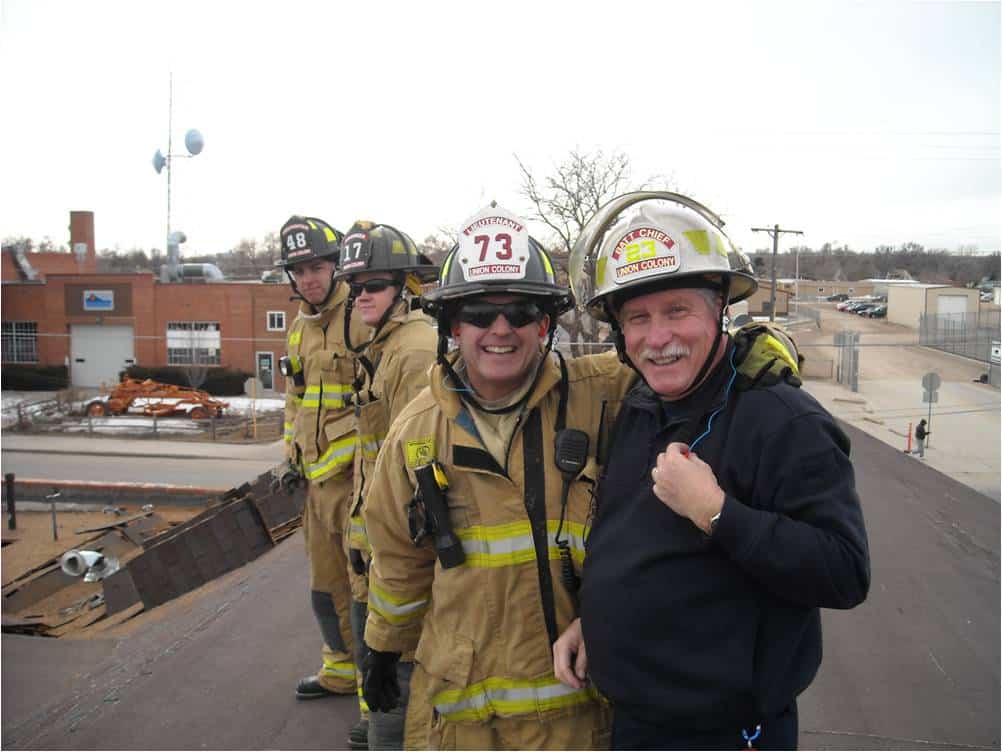
You don’t have to be an officer to be a leader. However, a good officer must have good Leadership skills and traits. This page is dedication to those aspiring to be Leaders within their fire department and within the Fire Service.
I spent a third of my career as a Chief officer. I learned from great leaders during this time. I strived to always keep learning through reading, attending leadership conferences and learning from my mentors.
The world of the fire service, leadership is often associated with official officer ranks. However, true leadership extends beyond mere titles or positions of authority. It is a quality that can be exhibited by anyone within the fire service, regardless of their rank or position.
With their first book, Extreme Ownership (published in October 2015), Jocko Willink and Leif Babin set a new standard for leadership, challenging readers to become better leaders, better followers, and better people, in both their professional and personal lives. Now, in THE DICHOTOMY OF LEADERSHIP, Jocko and Leif dive even deeper into the unchartered and complex waters of a concept first introduced in Extreme Ownership: finding balance between the opposing forces that pull every leader in different directions. Here, Willink and Babin get granular into the nuances that every successful leader must navigate.
Leadership within the fire service is not solely about issuing orders; it is about exemplifying competence and expertise in one’s role. Whether you are a firefighter, paramedic, or a support staff member, consistently demonstrating a high level of professionalism, technical proficiency, and knowledge instills confidence in others and earns their respect. By continually seeking opportunities to expand your skills, staying updated with the latest advancements in firefighting techniques, and actively engaging in professional development, you position yourself as a trusted resource and an influential leader within the organization.
One of the most powerful ways to influence others is through leading by example. As a officer or a non-officer in the fire service, your actions, work ethic, and attitude have a profound impact on those around you. Strive to embody the core values and principles of the fire service, such as integrity, dedication, and selflessness. Consistently display a strong work ethic, demonstrate a commitment to safety, and show empathy and compassion towards both colleagues and the community you serve. By setting a positive example in all aspects of your work, you inspire others to follow suit and contribute to a culture of excellence and professionalism.
Leadership within the fire service transcends the constraints of rank or position. Regardless of your official title, you have the power to become a leader and make a lasting impact within the organization. By demonstrating competence and expertise, fostering collaboration and mentorship, and leading by example, you inspire others to strive for greatness and contribute to a unified and effective fire service. Embrace the opportunity to lead from within and watch as your actions ignite positive change and elevate the entire team to new heights of success. Remember, true leadership is not defined by a title; it is defined by the positive influence you have on others and the legacy you leave behind.
Pride and Ownership holds no punches. Chief Rick Lasky takes a hard look at the fire service and finds it short on the only element that makes it effective: passion. Chief Lasky gives an upfront and honest criticism about the need to reignite the love of the job on every level, from chiefs on down.
_________________________________________________________________________________________
Know your Role within your Deportment as an officer.
This post is a great starting point for new officer. Read over this post discussing the roles and responsibilities of all the ranks within the fire service.
_______________________________________________________________________________________
Two of the most dynamic leaders of today, Retired Navy Seals Jocko Willink and Leif Babin learned leadership thru Combat. Their book Extreme Ownership is one of the most powerful and gripping read on developing strong leadership.
Combat, the most intense and dynamic environment imaginable, teaches the toughest leadership lessons, with absolutely everything at stake. Jocko Willink and Leif Babin learned this reality first-hand on the most violent and dangerous battlefield in Iraq. As leaders of SEAL Team Three’s Task Unit Bruiser, their mission was one many thought impossible: help U.S. forces secure Ramadi, a violent, insurgent-held city deemed “all but lost.” In gripping, firsthand accounts of heroism, tragic loss, and hard-won victories, they learned that leadership – at every level – is the most important factor in whether a team succeeds or fails. Willink and Babin returned home from deployment and instituted SEAL leadership training to pass on their harsh lessons learned in combat to help forge the next generation of SEAL leaders.




